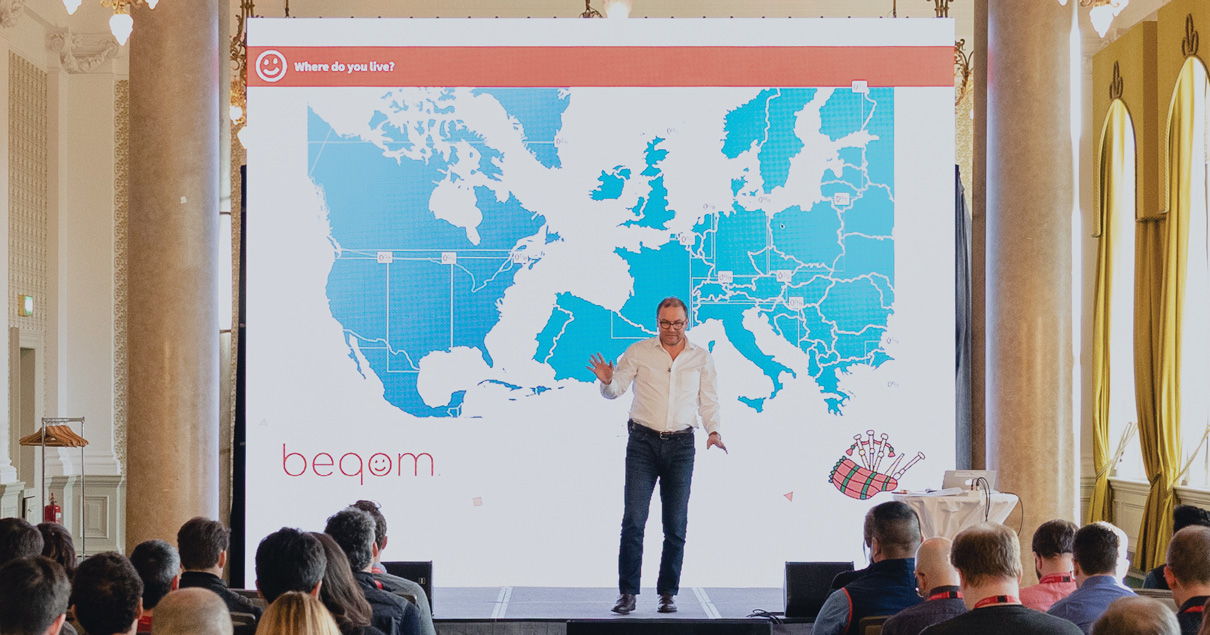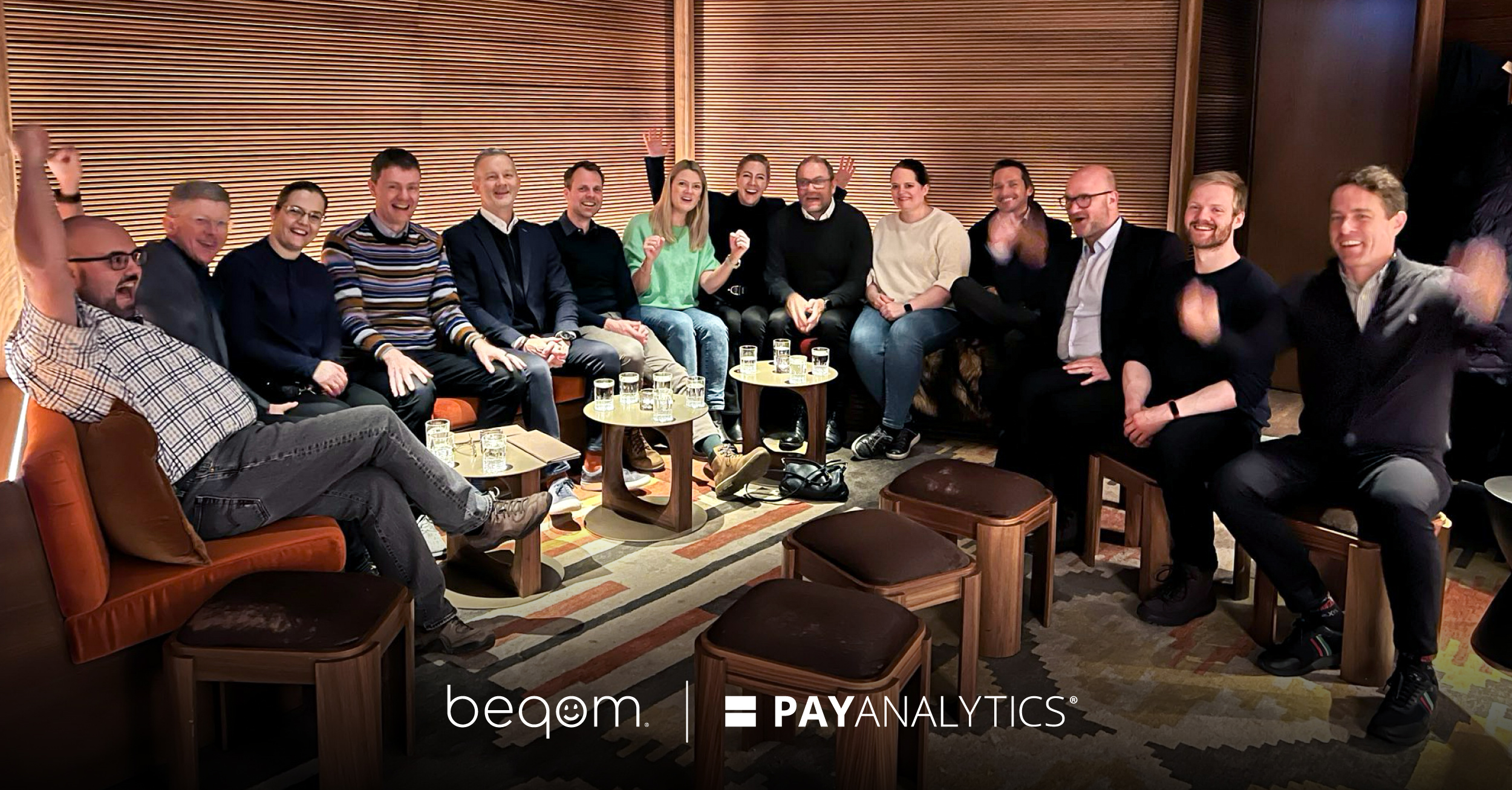As the world shrinks and cultures become more and more intertwined, companies are re-examining what it means to be multicultural, to be diverse, to be global. At beqom we serve large enterprises around the world, and those customers in turn serve employee communities that are varied in geography, language, culture, custom, and business practices. We have seen how our own global DNA helps us to serve our global customers better. We believe that if you want to serve the global marketplace, you need to be global, inside and out.
Be global to serve globally
For us at beqom, being global means being able to work round-the-clock to support customers. It means being able to draw upon the expertise of specialists as needed, regardless of their physical location. And it means we are better able to understand the challenges our customers face as large global enterprises.
We see the efforts companies are making to address local needs, while maintaining consistency and fairness across the organization, and we provide them with tools to do that. Companies want to ensure fair pay, but they recognize that standards for fair pay vary according to regions and local conditions. Pay has to be competitive for the market you are in, appropriate to employees within that market based on their role and seniority, and sensitive to fairness across factors such as age, gender, sexual orientation, and ethnicity. If you cannot assess that, you cannot ensure fair and competitive pay.
The importance of appreciating cultural differences
The Society for Human Resource Management (SHRM) research contends that national culture has a greater effect on employees than the culture of their organization.
“Organizational leaders and HR professionals should understand the national cultural values in the countries in which the organization operates to ensure that management and HR practices are appropriate and will be effective in operations in those countries,” writes SHRM.
Why is it good to have different cultures working together within your company? Organizations that have global DNA are best positioned to support a global customer base. When you have had to deal with cultural differences yourself, you are more attuned to cultural differences in others. You may not understand every culture, but you know enough to know that you don’t know enough, and that you should be listening and learning, striving to understand what is important to others, how they conduct themselves, what they expect.
History provides many examples wherein insular corporate cultures have led to business disasters. Abercrombie & Fitch in the early 2000s found that its strategy to be “exclusive” led to an homogeneous culture, discriminatory behaviors, lawsuits, fines, and boycotts. By contrast, companies that embrace diversity and are sensitive to cultural differences are better positioned to thrive in today’s world. This applies to the marketing of products and services, but also to effectiveness in recruiting and retaining talent and motivating employees to achieve corporate goals.
Listening and adapting
In HR, if you are not adapting your practices to local cultures, you risk being tone-deaf on issues that are important to employees and potential employees, tarnishing your brand, and making it harder to recruit talent. How can you know if you’re being tone deaf? Create a safe space and ask your employees. They will tell you, if they feel you really want to know the truth and are willing to listen and to change.
Being global requires understanding local cultures and markets and balancing local autonomy with corporate goals. It also requires an appreciation that cultures and business practices, along with laws and regulations, evolve over time. Keep listening, keep learning, keep adapting.
Reflecting the world
Cultural understanding can be learned to a degree, but nothing is more effective than having a multicultural DNA. Companies that reflect the cultural diversity of their community and customer base are best able to understand and support the needs of those customers.
At beqom, “global” is in our DNA. Switzerland, home to our world headquarters, has four official national languages, is known for neutrality and efficiency, and is renowned as the locus of many international organizations, such as the European headquarters of the United Nations, the Red Cross, and countless NGOs. beqom employees represent 21 different nationalities and speak at least 23 languages. Our management team carries eight different passports. We have offices around the world, and many of them are themselves cultural melting pots. In our Swiss office, you’ll find employees hailing from Poland, Madagascar, Spain, Denmark, France, the US and the UK, and all around the world you will find beqom’s cultural mix.
Based on local cultural, societal, and market factors, a company may need different strategies for attracting talent and incentivizing behaviors. So, when we deliver software to manage total rewards, we know that it must give our customers the insight to assess their compensation plans in terms of effectiveness and equity across the organization. It also has to provide the flexibility to tailor plans to local markets and to handle complexities like expats, data privacy rules, and the ability to run multiple, sophisticated incentive plans.
The world has a long way to go to achieve universal tolerance and harmony, but a multicultural company shows that people can indeed come together in a microcosm, and accomplish much.



